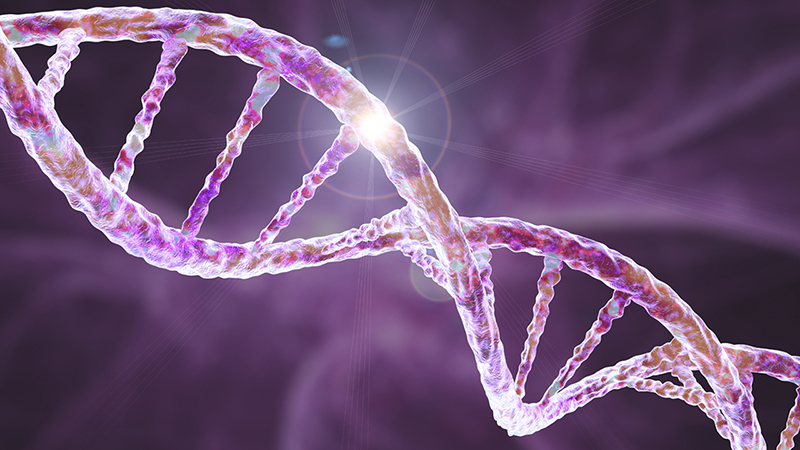ALS: Research and Discovery
Published October 2019
Committed to the Search for Answers
Amyotrophic lateral sclerosis (ALS) is a devastating neurological disorder of unknown cause, but one Northwestern Medicine scientist is on the search for answers, and he’s leaving no stone unturned. Robert Gordon Kalb, MD, Northwestern Medicine neurologist, chief of Neuromuscular Disease in the Department of Neurology and director of the Les Turner ALS Center at Northwestern Memorial Hospital, hopes his research will lead to more robust treatment options for ALS.
ALS: In Your Genes
ALS affects the nerve cells in the spinal cord and brain. In a healthy person, the coordinated action of the brain and spinal cord neurons generates signals to the muscles to contract. With ALS, these nerve cells degenerate, leading to muscle weakness and, ultimately, paralysis.
There are two types of ALS: familial and sporadic. While familial ALS is hereditary, it only accounts for 10 percent to 15 percent of cases. The cause of sporadic ALS is unknown, but it is thought to be a combination of both genetic and environmental factors. Aging may also play a role in both familial and sporadic cases, as ALS primarily affects adults.
“I believe that for individuals with sporadic ALS, defects in multiple genes are the main disease driver,” explains Dr. Kalb. Dr. Kalb theorizes that when these gene defects occur together, they can make you susceptible to developing ALS. When you add aging and unknown environmental factors, that is when ALS emerges.
ALS Symptoms and Diagnosis
Each individual experiences ALS differently, so symptoms and progression of the disease will also be different. However, the most common symptoms include:
- Muscle cramps, twitching or weakness, especially in the hands or feet
- Loss of control in the arms or hands
- Chronic fatigue
- Difficulty running or walking
- Trips or falls
- Dropping things
- Difficulty with writing
- Uncontrollable periods of laughing or crying
- Slurred or thick speech and difficulty projecting the voice
There is no specific blood or imaging test that confirms ALS. Rather, it’s a diagnosis of exclusion. “We try to be sure some other illness with similar symptoms is not the culprit. Once other possibilities are ruled out, the electromyography (EMG) test is often decisive in coming to the diagnosis of ALS,” says Dr. Kalb.
Although there is no cure for ALS, there are treatment options to help manage symptoms, including two FDA-approved medications.
Because of the complexity of ALS, programs like the Les Turner ALS Center use a multidisciplinary approach to manage symptoms. The partnership with the Les Turner ALS Foundation also provides patients and their families access to no-cost support services that include grants, equipment loan banks, and a team of social workers and nurses to enhance the continuity of care between clinic visits.
ALS Research
Dr. Kalb and his team at the Les Turner ALS Center at Northwestern Medicine are studying ALS in tissue cultures of microscopic worms in an effort to better understand the disease and its underlying genetics. “We’re trying to understand the molecular mechanisms that lead neurons to not operate correctly and ultimately degenerate,” he explains. “The search for therapeutic targets comes from understanding, at the most basic level, how events in motor neurons go awry in ALS.”
And while Dr. Kalb remains cautiously optimistic, his advice is a good reminder for everyone: “ALS compresses time. I always encourage my patients to try and find happiness, and enjoy life to the fullest.”






